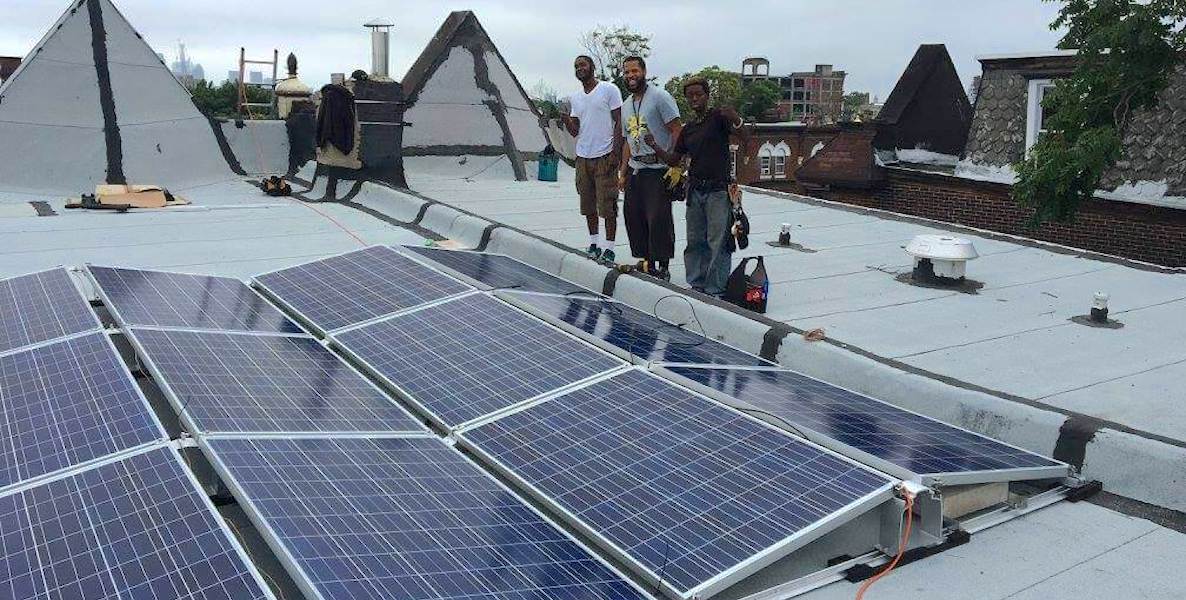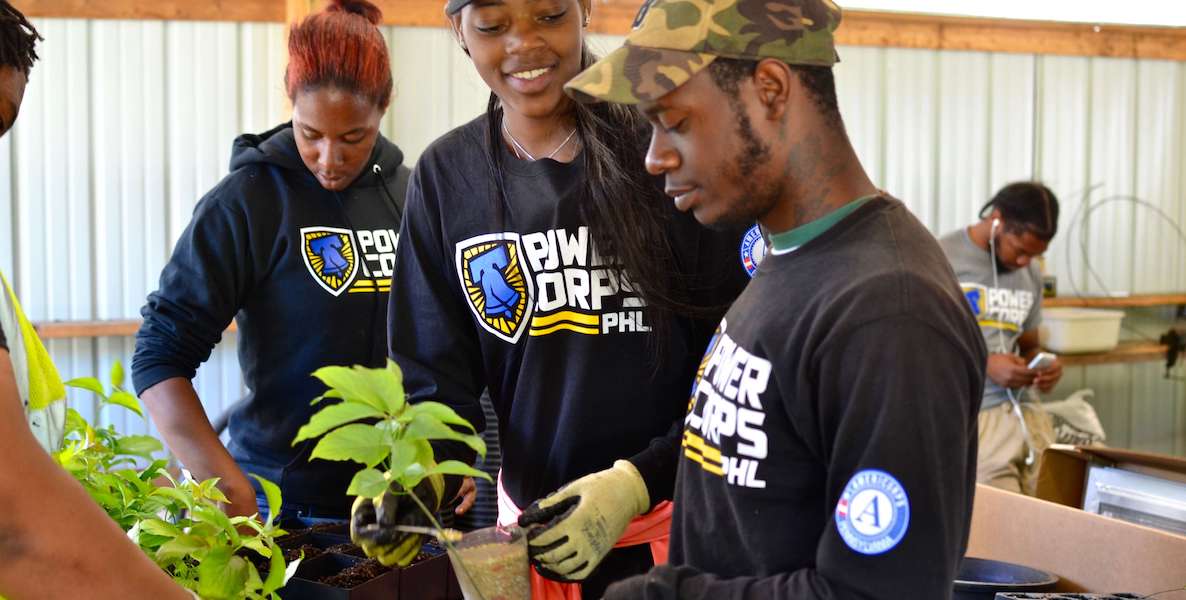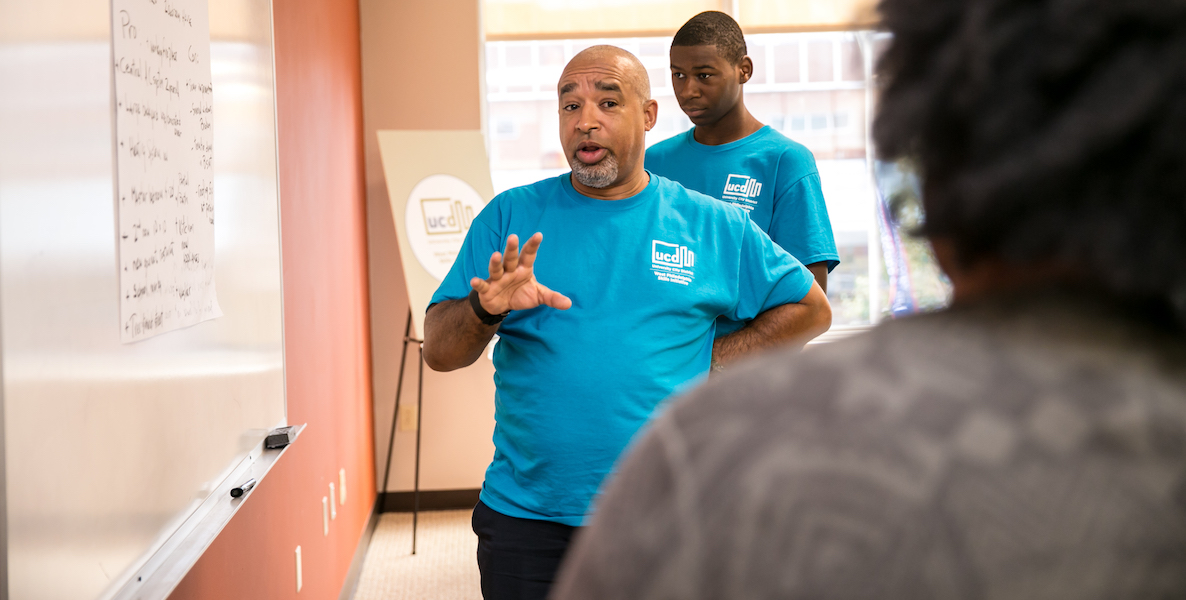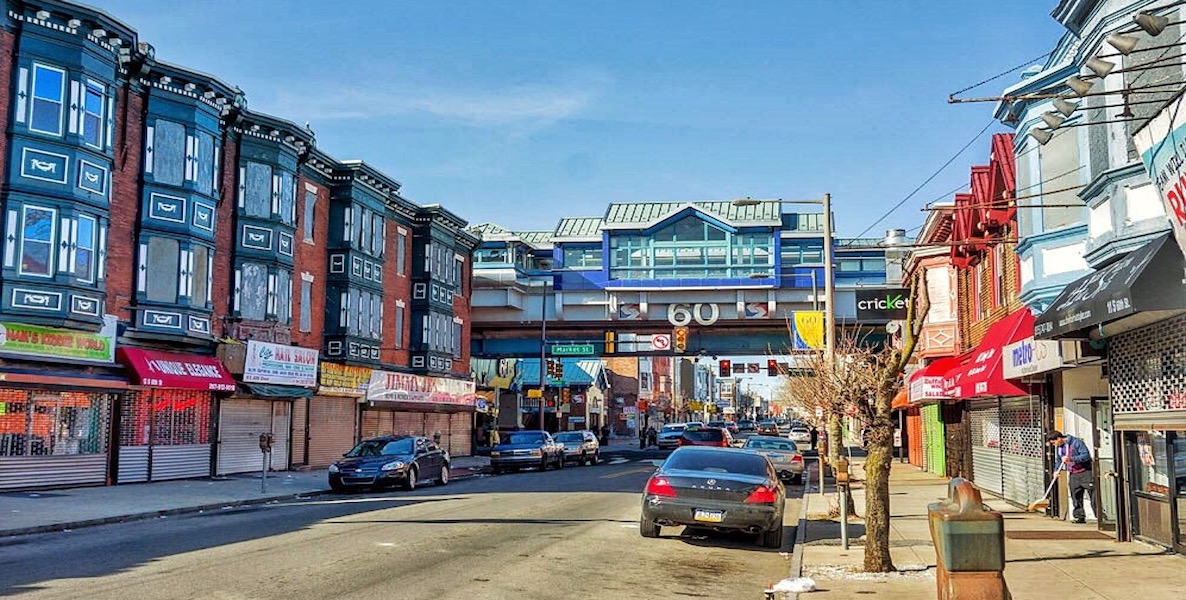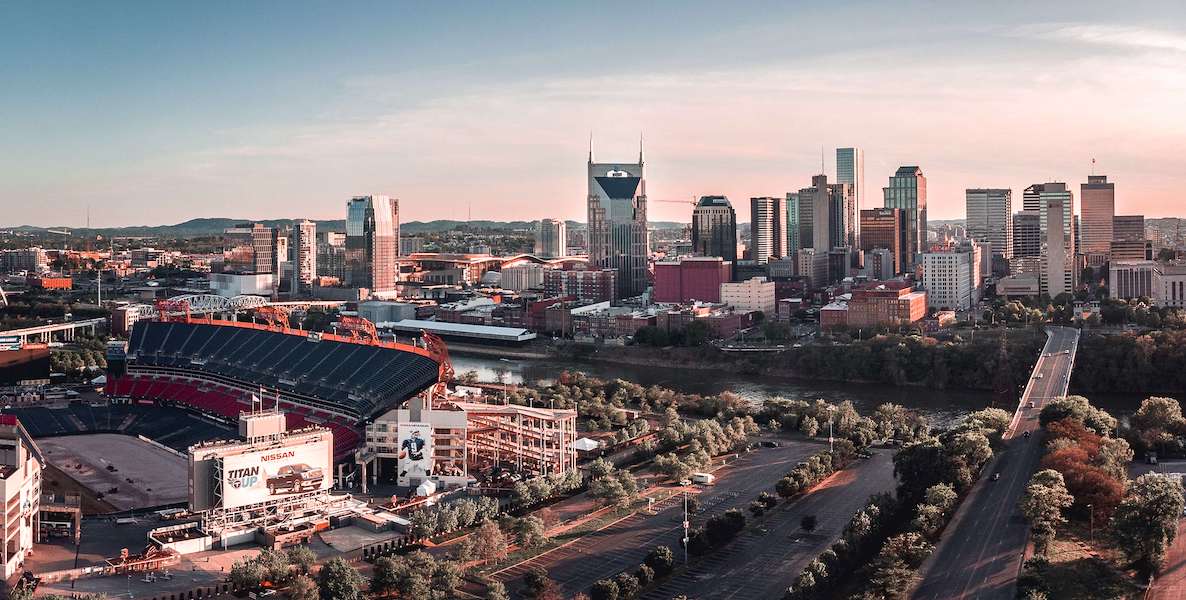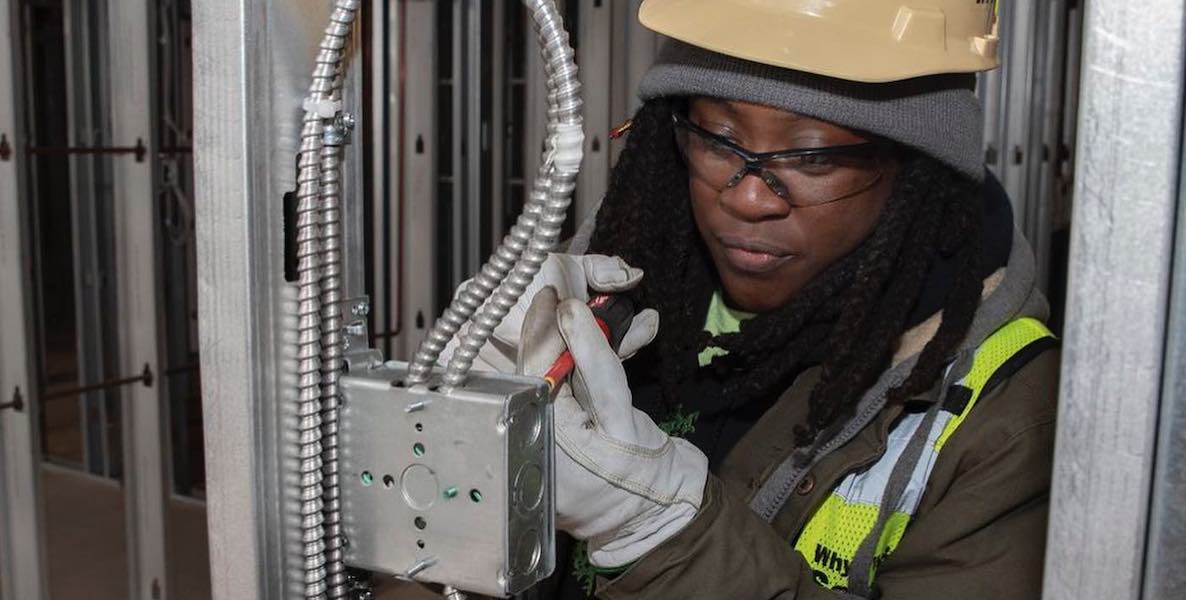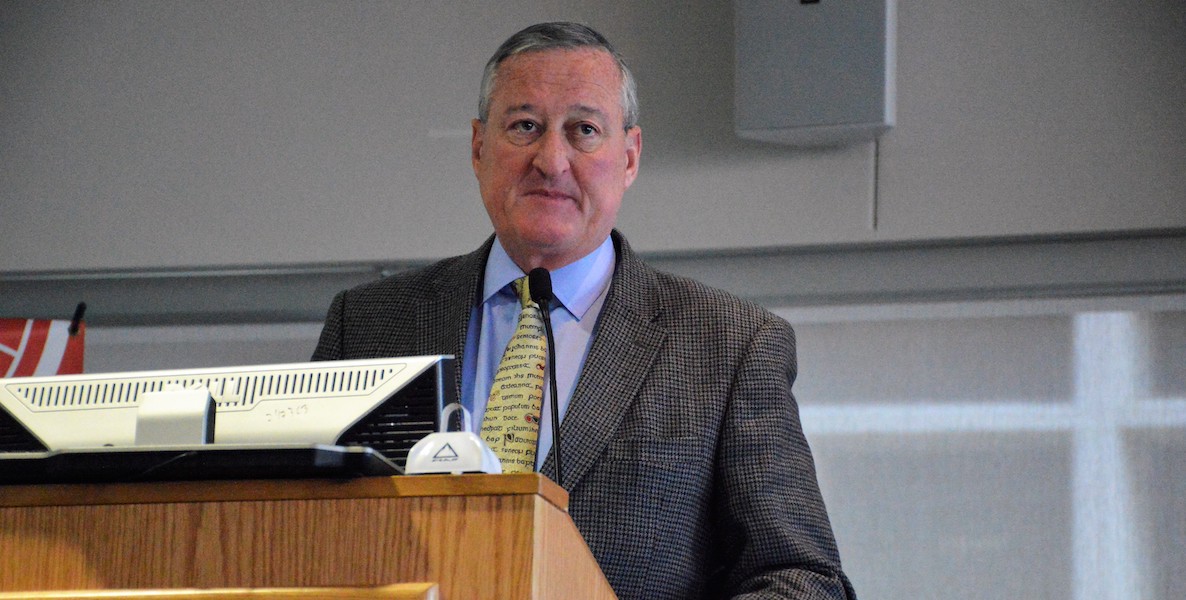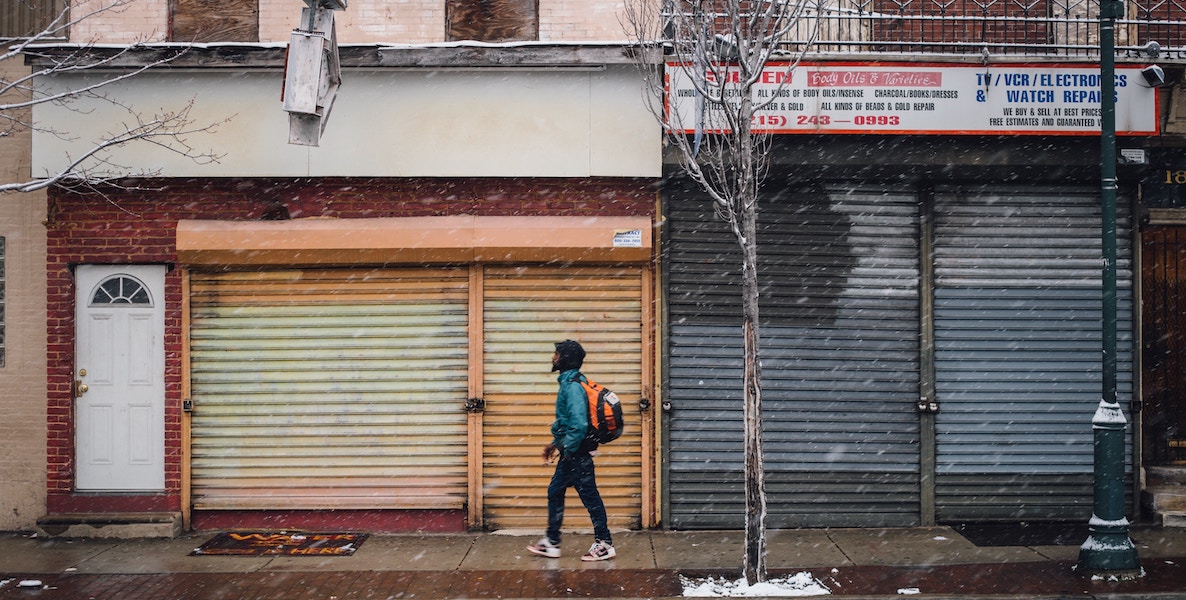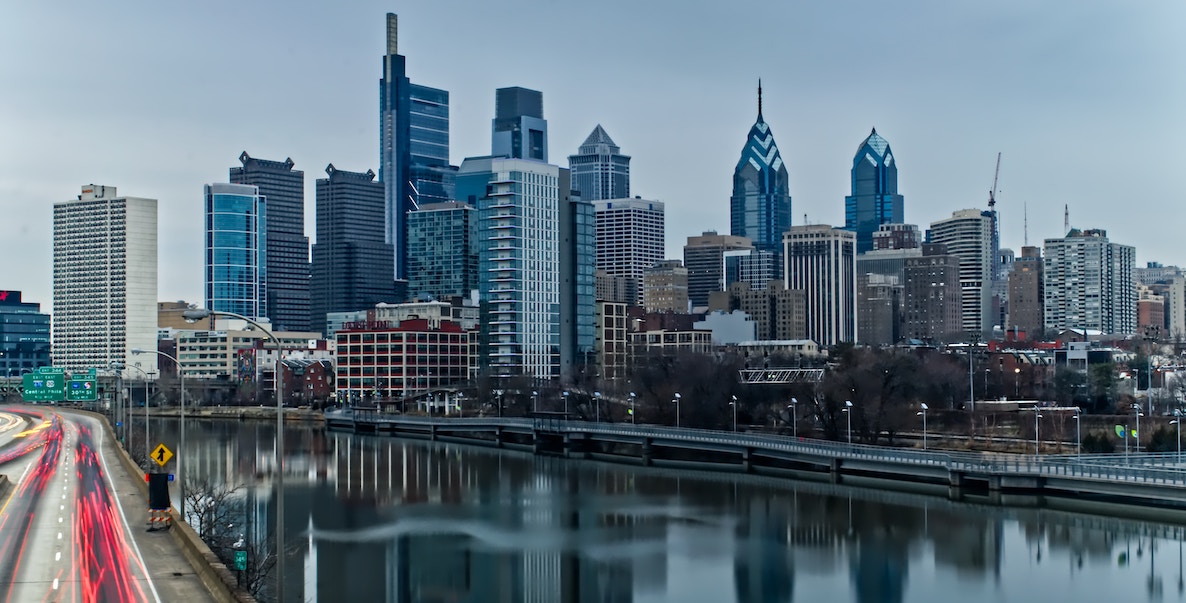A few months ago, at another in a series of Union League talk fests to consider what ails the Philly economy, the usual bromides flew from the stage to a well-heeled breakfast crowd.
Councilwoman Maria Quiñones-Sanchez, then-outgoing PIDC Chair John Grady and others in the Philly business and real estate constellation shared their hand-wringing over our worst-in-the-nation poverty, over our exorbitant cost of construction, over the real estate tax abatement, over the still-sorry state of our schools.
Finally, it was time to get real. Developer Matt Pestronk, sitting in the front row, had heard it all before. “Someone’s gotta talk about the elephant in the room,” he ![]() barked. “No one’s talking about the fact that what we really need is to diversify the building trades.”
barked. “No one’s talking about the fact that what we really need is to diversify the building trades.”
Of course, the panelists found a way to pivot from the import of Pestronk’s question, politically loaded as it was. For Pestronk was getting at something fundamental to Philly’s public dysfunction.
All those progressives who dot our political landscape? Precious few (Quiñones-Sanchez has generally been an exception) will publicly call out the building trades, promiscuous funders of campaigns who are famously reticent when it comes to including among its members African Americans, women or even residents of Philadelphia.
“Lower income communities have heard a lot of song and dance over the years, but once you show them your intentions are true, they’re all in,” Matt Pestronk says.
After the panel discussion, I sought out Pestronk.
“It’s pretty simple,” he said. “If you want to talk about poverty, we’ve just gotta hire more black people in the city. And the best way into the middle class is the trades. Instead, what we’ve seen is a transfer of wealth from the school children of Philadelphia to Delaware County. We’ve got low minority participation in the trades, the schools are made up of mostly minority students, and the tax payments that should have gone to the schools have gone to subsidize union labor.”
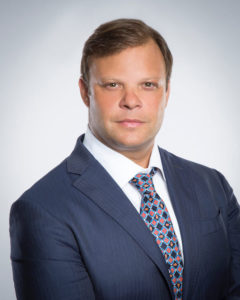
If you don’t know Pestronk, you’ve seen the headlines over the last decade chronicling the battles he and his brother Michael—their company is called Post Brothers—have engaged in with union thuggery. Now that they’ve stared down that dubious Philly tradition, the Pestronks have turned their focus to engaging the issue Matt raised at the Union League: Doing something about the sub-par state of workforce development in the city. And they’re doing it in the same blunt, practical way that they stood up to the unions.
First, some background. When the Pestronks sought to turn the former Goldtex factory in Callowhill into a deluxe apartment complex almost a decade ago, ugly union harassment ensued when the brothers had the temerity to open the project to competitive bid and award over half of it to a more diverse and local non-union workforce.
Delivery trucks were blocked at the site; non-union workers were pushed around; oil was poured on the driveway at the worksite’s entrance; it was even reported at the time that then-Councilman Jim Kenney sicced L&I on the site at 12th and Wood. Perhaps most troubling, fliers with photos of Matt’s wife were distributed that featured erect penises and the sophisticated tag line: “Carrie Pestronk likes to get hard with it.”
“We just laughed at that,” Pestronk recalls now. Unlike so many developers who had long gone along with union demands in order to get along, the Pestronks didn’t back down. They posted an online video of the union bullying and assaults.
Over time, the Pestronks, who now own and operate some $2 billion in properties, exposed the purveyors of union strongman tactics as paper tigers. You don’t think of flopping around on a mat in a gym as prep for big-city development, but Matt honed his resilience as a wrestler in high school and at Drexel.
“Wrestling was the hardest thing I’ve ever done in my life,” he said when I recently caught up with him at his company’s offices in Northern Liberties, near the Piazza, a controlling interest of which he and his brother purchased in 2017 for $44 million from none other than Jared Kushner.
“You learn to live in an extreme state of discomfort as a wrestler. I was fortunate enough to never be in combat or anything like that, but people who wrestle at a high level, they have nightmares about having to go back and doing it again for 10 or 15 years after. I’d train six hours a day, bench press twice my body weight. So when some huge guy the size of Jason Peters is sitting there taunting me on a job site, I’m just like, ‘Really? This is what people are afraid of?’”
The Pestronks didn’t know what they didn’t know, and in short order they came ![]() to understand Philly. One of Pestronk’s role models is the legendary developer Bill Zeckendorf, who built the Alcoa Center in Pittsburgh, what’s now the Helmsley Building in New York, and Society Hill Towers.
to understand Philly. One of Pestronk’s role models is the legendary developer Bill Zeckendorf, who built the Alcoa Center in Pittsburgh, what’s now the Helmsley Building in New York, and Society Hill Towers.
“He looked for places where there was a closed-minded way of thinking, where things had always been done the way they’d always been done,” Pestronk says.
For Zeckendorf, like the Pestronks, being opportunistic was not only a business plan, but a badge of honor. Now the Pestronks have taken that same mindset to their company’s own minority workforce development program, putting their money where Matt’s mouth was at that Union League event.
At the Post Brothers’ West Poplar apartment construction site, they’ve entered into an innovative community benefits agreement with the area neighborhood association, guaranteeing not only that 10 percent of the project’s workforce would be hired locally, but also that half of its workforce would be comprised of people of color and women.
“Someone’s gotta talk about the elephant in the room,” Pestronk barked at the Union League talk fest. “No one’s talking about the fact that what we really need is to diversify the building trades.”
And that’s just the beginning. “We’re going to blow this program out, whether it’s connected to community benefit agreements or not, because, ultimately, it’s in our interest to have more people working in the neighborhoods where we build,” Pestronk says, noting that the average household income in West Poplar is $24,000.
Pestronk has witnessed firsthand the need for new thinking when it comes to workforce development strategy. A 2016 Department of Labor report concluded that government job-training programs were largely ineffective, and a McKinsey report found that “hard evidence of return on investment for workforce-development programs is scarce, for both employers and workers” and that “that lack of proof is why many employers are reluctant to participate in workforce programs, much less to pay for them.”
Perhaps that’s why the steering committee behind “Fueling Philadelphia’s Talent Engine”—the city’s workforce development blueprint—features so few businesses and entrepreneurs. To its credit, under Sheila Ireland, hired by Mayor Kenney as executive director of the Office of Workforce Development in 2018, the city has finally begun addressing the looming crisis over the future of work in Philadelphia, where, according to the Philadelphia Fed almost 18 percent of jobs in the greater Philadelphia region are at high risk of being eliminated through automation.
The Office of Workforce Development has been convening stakeholders and creating an intergovernmental Future Forward Council to try and get local policymakers to focus on the challenge. But, as Pestronk has observed, a lot of the chatter about workforce development has become like the droning voice of the teacher from the Peanuts cartoon.
“The answer is not getting existing minority and women-owned businesses certified to prop up the numbers, which is the biggest load of crap there is,” Pestronk says. “Those people are already middle class if they’re business owners, which is great. But I want the pie to grow for everyone, and real workforce development is how you do that. Government work development programs can be bureaucratic and inefficient. We’re knocking on doors in neighborhoods and telling folks they can go from earning nothing to $700 or $800 a week. You’re not getting hired to write a resume, you’re getting hired to to be a carpenter.
“That’s what Jeff Brown does at his ShopRites. He’s been doing this with a social purpose at the grassroots level longer than I have, and it’s not abstract stuff he’s teaching. He’s like, ‘You’ve gotta learn certain skills to work in my grocery store, you’ve gotta show up on time.’ We’re not social workers. I’m in business to make money. But I’ve seen that, if they’re not mentally ill or on drugs, most of the people living in poverty have the positive intent to go to work if the opportunity is there for them.That’s what we have to do. Provide opportunity.”
Of course, it’s easy to talk about providing opportunity when the economy is humming along. What arguably sets the Pestronks apart is that they pledge to double down on the aggressiveness of their plan now that we’re in crisis and economic free fall.
“We firmly believe in swimming with our shorts on today,” Pestronk says, a reference to Warren Buffett’s observation that, when the tide goes out, you can see who is swimming with no shorts: A bad market, in other words, reveals bad businesses, and vice-versa.
Post Brothers was a small company before the Great Recession, and came out of the downturn stronger because they avoided complex financial structures and over-leveraging. The same conditions apply today, he says.
But Pestronk’s vision at this perilous moment goes even further. He actually sees the crisis wrought by coronavirus as an opportunity to tackle what he sees as the nation’s most vexing urban issue.
“Solving inequality in the context of development has become the economic challenge for our cities, and we want to lead the charge to take on that challenge,” he says. “There will be renewed emphasis to create entrepreneurship and housing within urban neighborhoods that benefits the people there already, while welcoming new businesses and people. It will be incumbent upon companies like mine to reciprocate for the opportunities we’ve received by leading the charge to build community wealth and housing stability.”
Pestronk’s vision at this perilous moment goes even further. He actually sees the crisis wrought by coronavirus as an opportunity to tackle what he sees as the nation’s most vexing urban issue.
When I tell Pestronk that all this talk of providing grassroots opportunity can make him sound like a mayoral candidate, he doesn’t blink. He says, instead, that he was a history and politics major at Drexel, and that, maybe, somewhere down the line, he will run for office. But not now. He has too much to prove now.
But that doesn’t mean he won’t exert influence—something too few in the business community seek to do. Part of what sets Post Brothers apart, in addition to the brothers’ sheer chutzpah, is the vastness of what the brothers manage.
They’re not just developers. They do it all: Site selection, acquisition, construction, and property management, all in-house, which enables them to control costs while delivering luxury amenities.
Matt and Mike Pestronk, in other words, have built things, big things, and managed complex systems, and they’ve even made the offer to local public officeholders, including the Kenney administration: Put our expertise to work for you. Let us help you run things.
To date, there have been no takers, so the Pestronks are doing their own workforce development thing, knocking on doors, offering to train and give locals family-sustaining jobs. And those unions with whom the brothers were once at loggerheads? They’ll be more than welcome to recruit the workers the Pestronks train.
“It’s actually work to go into these communities, to work with community leaders, to figure out a way together to get people in the neighborhood working again,” Matt Pestronk says. “Lower income communities have heard a lot of song and dance over the years, but once you show them your intentions are true, they’re all in.”
And then he stops, and you think he’s going to catch himself, because he’s gotten up on his change-agent soapbox again. But instead he doubles down, and sounds like a candidate all over again. “You have to have a leadership class that acts with empathy,” Matt Pestronk says.
Header photo courtesy Post Brothers / Facebook


